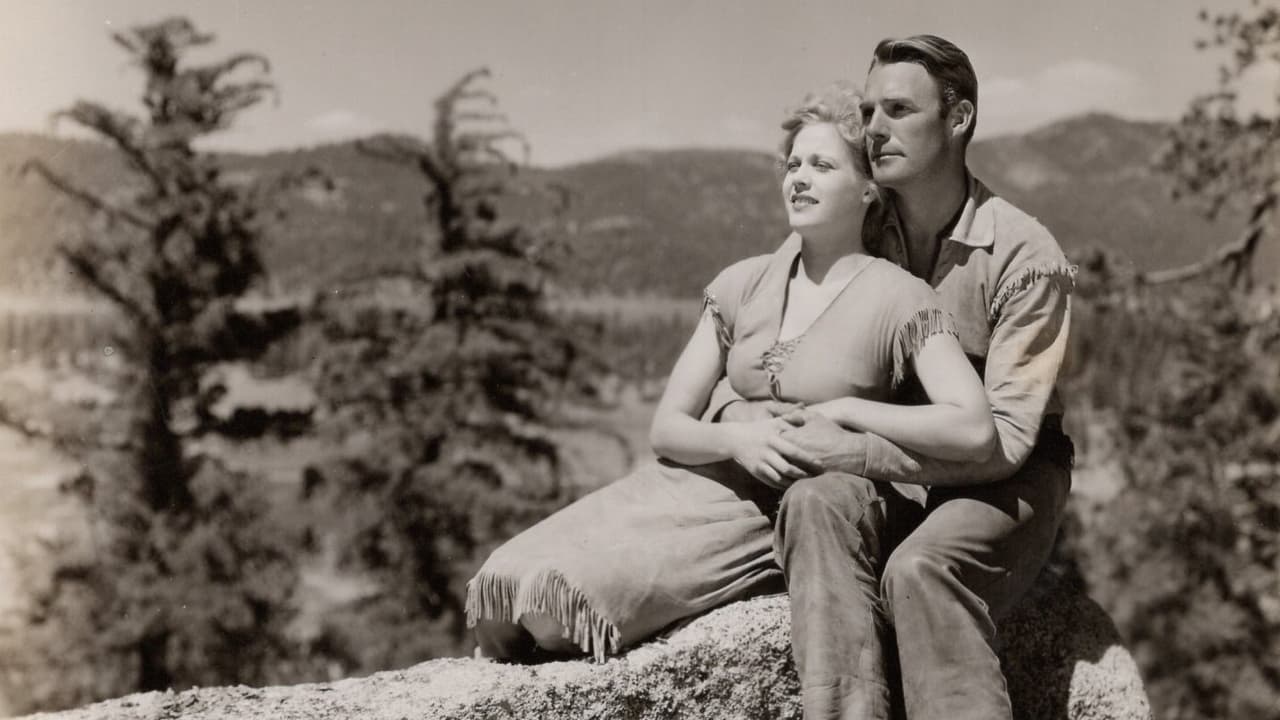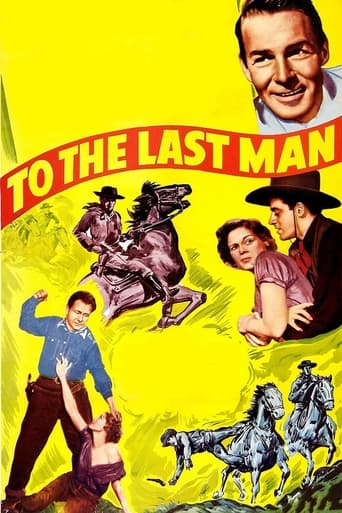Matcollis
This Movie Can Only Be Described With One Word.
Siflutter
It's easily one of the freshest, sharpest and most enjoyable films of this year.
Mabel Munoz
Just intense enough to provide a much-needed diversion, just lightweight enough to make you forget about it soon after it’s over. It’s not exactly “good,” per se, but it does what it sets out to do in terms of putting us on edge, which makes it … successful?
Logan
By the time the dramatic fireworks start popping off, each one feels earned.
Robert J. Maxwell
It's 1866, the year after the civil war. The Haydens and the Colbys have been a-feuding and a-fussin' for nigh on a long time now. But Pappy Hayden, having fought as a soldier, has seen enough blood for a lifetime, so he packs up with two kids and leaves Kentucky behind, a-headin' for the West, where he manages to set up a cattle ranch.Meanwhile, Pappy Colby was convicted of murder with, I guess, mitigating circumstances since his helpless victim was a Hayden. He gets fifteen years in the slams. When he gets out, he learns that the Hayden family is now out West, so he and his daughter, Esther Ralston, and one of the Colby goons, Jack La Rue, a-ride out West looking for them. Jack La Rue, by the way, sounds exactly like John Ireland if John Ireland couldn't produce a believable line of dialog.This business of feuding is kind of interesting from the point of view of cultural evolution. It's a kind of transitional legal stage, somewhere between abject savagery and written rational/legal authority. There's a sense of personal honor mixed in with it. That's where the Hatfields and McCoy's come in.Appalachia was settled in the early 1700s mostly by immigrants from the borderlands of Scotland and England, where there was very little in the way of rational law. Families settled their own arguments. That's where you get the MacDonalds versus the Campbells. All these traits -- clan feuds, duels, the culture of honor, the thirst for independence from any authority -- were brought from their source region to Appalachia and later the Wild West, where they flourished. And you wind up with Shane out-drawing the bad guys.Nope. As Grandmaw Spelvin puts it, "No Hayden don't go squealin' to the police." Thank you for your attention. Now, where were we? We're out West and the bad family, the Colbys, are trying to prod the good guys, the Haydens, into a continuance of their Kentucky feud. They do this by rustling cattle, shooting at little girls, killing the family dog. Their plan is complicated by two things. One is that, while the Hayden boys are perfectly willing to fight, Old Pappy Hayden keeps insisting that when the time comes he'll take it to the law.Another complication, which comes as no surprise whatever, is that one of the Hayden boys, Randolph Scott, and one of the Colby hoydens, Esther Ralston, fall in love at first sight. We can see why Randy is attracted to her. She's kind of good looking, as brawny in her own way as Randy is in his. But she's rough trade as well. "I ain't used to be polited at." It doesn't give much away to say that the ending resolves the feud forever.The film didn't go through a benediction by the Criterion Collection. The print is spiky and primitive and the sound is muffled. There are problems with the continuity too. For a few minutes I didn't know whether we were in Kentucky or out West. And Ralston catches Randy shaving. He puts down his razor, wipes his chin, reaches for a shirt and when he turns around he's wearing it. And I don't know how Pappy Hayden, who brought only a little boy and a little girl with him, acquired such a large family in so few years. Still --
Syl
This movie is in the Shirley Temple collection. She is only in a for a few minutes and uncredited. The film was under the title, Law of Vengeance, instead of the Last Man. It must have been her film debut. The film is dark in subject matter as there is plenty of violence. The cast is excellent with Randolph Scott and Esther Ralston and others. The film shows the dangers of gun violence and vengeance between warring families in the Wild West. In 1933, the film industry was just getting started. I feel though this film was misplaced in the collection. The ending appeared abrupt and left in doubt about the ending too!
bux
Sure, this one really shows it's age, and getting a decent transfer to watch is tough, but in the long run worth it.As stated by other reviewers the cast is strong and interesting. The plot is standard fair by today's standards.But what really gripes my fanny about this site and other sites that review movies, is the fact that many reviewers often are unable to critique the picture in the time frame during which it was made. In the early 30s, this was heady stuff, ya bet yer spats it was.Another thing that gripes my fanny is IMDb's requirement for ten lines of critique. Effective writing shouldn't require a maximum, guys.My fanny is getting really griped lately. There, I think I made the minimum now! Yeah, 60 years from now TITANIC is going to look real good. Yeah.
bkoganbing
The Haydens and Colbys are two mountain families who've had such a long term feud, everyone's forgotten what it started over. Never mind when Pop Colby (Noah Beery, Sr.) shoots Grandpa down in cold blood, Dad Hayden takes an unorthodox and cowardly approach in some eyes, he calls in the law. The Haydens move west and Colby when he gets out of the joint takes the family and moves to where the Haydens are to take up where they left off. Along the way he has an ally, Jack LaRue, who has an agenda all his own.Of course in Romeo&Juliet fashion, the Hayden son (Randolph Scott) and the Colby daughter(Esther Ralston} meet and flip for each other. If anything that throws gasoline on the feud fire.This is one of the weakest of Randolph Scott's earlier westerns. I'm not sure if I'm seeing the complete film as a budget video company put out a re-release that looks like it was choppily edited. There are a lot of plot gaps and things that don't make sense.This is also one of the earliest films of Shirley Temple who's big scene is when one of the Colbys shoots the head off of her doll. It wasn't for sadistic purposes but to get the Haydens to chase them. Still it's an earlier weepy for Shirley. She later did two more films withRandolph Scott, Rebecca of Sunnybrook Farm and Susannah of the Mounties and with her name above his at that point.Also at the very end, the fadeout is Esther and Randy in what looks like a photograph of later domestic bliss. And the soundtrack was blaring the Bing Crosby hit Please. Kind of out of place, but since Paramount had the rights to it, they figured they had to use it.

